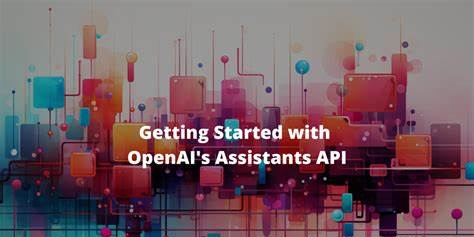In the ever-evolving landscape of technology, the realm of software development has been significantly impacted by the rise of artificial intelligence (AI). As businesses strive to stay competitive and meet the demands of a rapidly changing market, the integration of AI into software development processes has become increasingly prevalent. In this article, we will delve into the current trends shaping AI software development and explore how businesses can leverage this technology to drive innovation and achieve success.
Embracing Generative AI for Code Assistance
One of the prominent trends in AI software development is the adoption of generative AI for code assistance. Developers in organizations of all sizes are embracing AI-powered tools, often referred to as “co-pilots,” to streamline the coding process and boost productivity. By utilizing AI to assist in code generation, developers can expedite the development cycle and bring new innovations to market at a faster pace. Studies have shown that developers using AI-powered tools can complete coding tasks up to twice as fast, underscoring the significant impact of AI on software development efficiency.
The Importance of End-to-End Automation
While AI-assisted coding holds immense potential for enhancing productivity, the lack of clear productivity metrics and end-to-end automation poses challenges to maximizing its impact. In many enterprise development environments, manual processes and fragmented workflows impede the seamless integration of AI into software development practices. To fully leverage the benefits of AI in software development, organizations must prioritize end-to-end automation across the entire software supply chain. By implementing automation in areas such as planning, building, testing, securing, releasing, and deploying software, businesses can streamline their development processes and drive greater efficiency.
Navigating the Transition to a Modern Software Development Approach
As businesses navigate the transition to a more AI-driven approach to software development, it is essential to consider the broader set of processes that contribute to delivering high-quality software. While AI can significantly enhance coding capabilities, it is only one aspect of the software delivery ecosystem. Organizations that embrace modern practices such as product-centric thinking, DevSecOps, test automation, and application security are better positioned to realize tangible business outcomes in the era of AI-driven development. Conversely, organizations that fail to modernize their development processes risk encountering inefficiencies and bottlenecks that could hinder the overall impact of AI-assisted coding.
Requirements for Success in AI-Assisted Coding
To succeed in implementing AI-assisted coding effectively, businesses must address key requirements that enable them to harness the full potential of this technology. Beyond coding efficiency, organizations need to focus on enhancing testing, security, release, and deployment capabilities to ensure a seamless software development lifecycle. Just as a high-speed train requires well-maintained tracks to operate efficiently, AI-assisted coding initiatives rely on robust testing, security measures, and deployment processes to drive success. By aligning coding innovations with comprehensive testing and security measures, businesses can position themselves as leaders in the rapidly evolving landscape of AI software development.
Preparing for the Future of AI-Assisted Coding
As we look ahead to the future of AI-assisted coding, it is crucial for businesses to proactively prepare for the challenges and opportunities that lie ahead. Whether organizations are already adopting AI-assisted coding or considering its implementation in the future, now is the time to evaluate existing processes and infrastructure to ensure readiness for this transformative technology. Leaders must assess factors such as use cases, governance design, required skills, and infrastructure readiness to determine the feasibility of integrating AI into their software development practices effectively.
In conclusion, the integration of AI into software development processes represents a paradigm shift in how businesses innovate and deliver products to market. By embracing generative AI for code assistance, prioritizing end-to-end automation, modernizing development practices, and addressing key requirements for success, organizations can leverage AI to drive innovation and achieve competitive advantage in a rapidly evolving landscape. As businesses prepare for the future of AI-assisted coding, investing in robust testing, security measures, and deployment capabilities will be essential to unlocking the full potential of this transformative technology.


